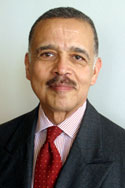ARCHIVES
OF EDITORIALS
January 20, 2005
An ungenerous spirit
President Bush’s pre-emptive strike against
Iraq has caused great consternation in the Islamic world. This
is especially so since the purported reason for the invasion was
the existence of weapons of mass destruction which threatened
America. It is not unreasonable for Islamic nations to conclude
that the WMD ploy was merely a hoax.
The situation was made even more complex because of Bush’s
unfortunate use of the word “crusade” to describe
his Middle East adventures. In medieval Europe, the Crusades were
wars by Christians to reclaim places where the people had converted
to Islam.
In the past, Islamic nations were distrustful of the American
government but generally accepting of the people. For the first
time American travelers abroad are in danger of attack from militants.
Travel to Muslim nations is especially hazardous.
The recent tsunami disaster provided an excellent opportunity
for America to demonstrate its goodwill toward Asian nations.
Frequently, crisis provides a time for healing and improving relations.
However, the slow and miserly response of the Bush Administration
provoked a backlash in the foreign press. Journalistic reports
suggest that increases in contributions of the U.S. government
to the relief effort resulted from the international outcry.
Although Americans proudly claim to be extraordinarily generous,
the facts do not support this assertion. The U.S. ranks last among
22 top donor countries for relief and development in Africa, South
America and Asia. The only way to evaluate generosity is by comparing
the size of the donation to the country’s national income.
The U.S. gave to poorer countries only 15 cents of every $100
of national income. The similar donations of some other countries
are: Denmark – 84 cents, the Netherlands – 80 cents,
Belgium – 60 cents, and France – 41 cents. Private
donations from Americans will add only 6 cents to the U.S. figure
which will then total 21 cents, which is still much less than
the truly generous donors.
Americans should rid themselves of the delusion that the country’s
foreign aid policy is especially generous. Let us hope that our
soldiers and aid workers can create the goodwill that the country’s
penurious financial commitment has failed to do.
A racial affront
The conduct of the executives of Metro is indeed
reprehensible. For them to engage in racially demeaning remarks
is inexcusable. Self-respecting African Americans and all citizens
who decry racial abuse should express their displeasure by refusing
to read Metro Boston. Rev. Jeffrey Brown of the Ten Point Coalition
is absolutely justified in calling for a boycott.
The Herald has been confounding the situation with its feigned
sense of outrage. Except for Howard Manly’s column, the
Herald has never shown any special sensitivity to the issues confronting
African Americans in Boston. The Herald’s real objective
is to derail the Globe’s acquisition of a minority interest
in Metro Boston.
Under the management of the Taylor family the Boston Globe always
demonstrated a great concern for racial justice. Boston was the
only city in the nation to comply with the media recommendations
of the Kerner Commission Report after the urban riots. That happened
because of the leadership of the Globe. There is every reason
to believe that the Globe will continue to respect this legacy.
The management policy at Metro Boston is clearly flawed. Many
of the so-called minority population of Boston (blacks, Latinos
and Asians) have now lost confidence in the impartiality and integrity
of Metro’s editorial content. The input of a journalistic
institution with the undisputed reputation of The Boston Globe
and The New York Times will be needed to correct the problem.
Home
Page

